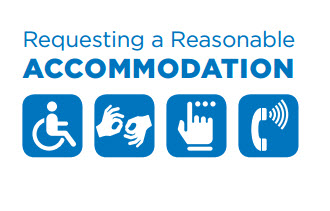

Keeping only those papers that are currently in use purging the rest.Making it a rule to handle each piece of paper only once.Requesting an administrative assistant to handle or to double-check detailed paperwork.Partnering with a co-worker with good organizational skills.Looking for work or choosing assignments that requires only short-term tasks.Asking a coach or your supervisor to assist you in identifying priorities.Striving to shorten the time allowed on a project to better utilize “sprinting abilities.”.Breaking projects up into milestones with closer due dates and breaking milestones into tasks.Writing notes on sticky pads and putting them in a highly visible place.Having auditory reminders on your computer for announcements and other memory triggers.Using visual ways to remember information such as a bulletin board.Writing checklists or recording complicated tasks and processes.Recording (on a tape recorder, or your smart phone) “notes-to-self” or meetings instead of taking copious notes at meetings.Avoiding over-scheduling the day by overestimating how long each task or meeting will take.Scheduling buffer time in your calendar for unexpected delays or interruptions in your day.Programming your computer to beep ten or fifteen minutes before you need to leave for a meeting on the calendar.Scheduling travel time to meetings and appointments and setting alerts taking them into account in your electronic calendar.Using notifications (such as alarms on your computer or devices).Using wall or desk charts to break large projects into smaller pieces.Using a day planner that you carry with you (ideally use an application that synchronizes with your smart phone) to keep track of meetings and tasks.Anticipating triggers to impulsive reactions and developing new ways of coping with them.Engaging in relaxation and meditation techniques.Requesting regular, constructive feedback.Learning to monitor impulsive actions by using self-talk.Creating scripts and working with a coach to role-play appropriate responses to recurrent challenging situations.Creating a no-interruption period in the day that you communicate to colleagues.Requesting a private office, taking work home, or working when others are not in the office.Staying away from multitasking and performing one task at a time. Humans cannot really pay attention to more then one task at a time.Keeping a list of ideas that come to you during meetings to avoid interrupting people.Keeping a notebook on your desk to jot down ideas and thoughts to avoid interrupting your work flow.Transferring phone calls directly to voicemail, and responding to them in batches at specific times in the day.Working in unused space when completing work that requires focus or attention to details.Using earphones for listening to music or white noise.The following strategies can help alleviate this problem: They may find it challenging to pay attention to a conversation when there are too many distractions in the environment.

People with ADHD also are easily distracted by their own thoughts. Inattention and DistractibilityĪDHDers cannot filter noises, interruptions, and even movement around the office as well as those who don’t have ADHD.

If it doesn’t, move on to something else. Keep an open mind and work with your employer to “experiment” with different accommodations.


 0 kommentar(er)
0 kommentar(er)
